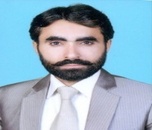5187
Scientific Program
Keynote Session:
Oral Session 1:
- Waste Management and Recycling
Title: Clean Technologies for Sustainable Development
Biography:
Veljko Radicevic, is completed PhD and noe he is working in Academy of Technical and Art Applied Studies Belgrade, Serbia.
Abstract:
The enlarged use of automobiles has multiplied certain side effects, such as congestion, growing number of casualties in traffic accidents, noise, air pollution, rapid warming and destruction of the ozone layer. These factors directly or indirectly affect the quality of life of the inhabitants of large cities. It is clear that the pollution problems may be reduced by the use of “cleaner“ technologies in the operation of motor vehicles. The other problems are associated with the increasing use of motor vehicles, and cannot be solved in this way. They are related to the impact on health (injuries in traffic accidents and decreasing physical activity), economy (severe traffic congestion and extended travel time), environment (occupation of green spaces, noise), and society (alienation and space reduction). Modern approaches in solving the above mentioned issues can be found in the principles of sustainable development. The reduction of the use of motor vehicles is realized by taking “soft measures“, such as: making use of various forms of communication, advertizing and education aiming at altered attitude and behaviour in local community.
Key words: sustainable development; clean technology; behaviour in local community
Title: CONVERSION OF PUTRESCIBLE COMPONENTS OF MUNICIPAL SOLID WASTE INTO ORGANIC FERTILIZER BY AEROBIC COMPOSTING
Biography:
Dr. Korai Muhammad Safar is an “Assistant Professor” of environmental engineering as well as “Quality Coordinator” at the Institute of Environmental Engineering & Management, Mehran University of Engineering & Technology, Jamshoro. Dr. Korai completed his B.E, M.E and Ph.D from Mehran University of Engineering & Technology, Jamshoro in 2006, 2009 and 2018 respectively. Dr. Korai’s main fields of interest are solid waste management, composting technology, anaerobic digestion technology, waste to energy and hazardous waste risk assessment. His research specifically explores how solid waste is to be managed to recover energy from it and to make cities of Pakistan sustainable for citizens of the country. Dr. Korai’s research work regarding to the waste to energy has been published in several reputable international journals having highest impact factor, such as Renewable and Sustainable Energy Reviews, Energy Conversion & Management, Energy, Waste Management, Waste Management & Research, Material Cycle and Waste Management, etc.
Abstract:
Increasing amount of municipal solid waste (MSW) because of overgrowing population and it’s openly dumping practice has created many environmental as well as socio-economic problems in developing countries. The putrescible components of MSW such as fruit, vegetable and yard wastes are major components of MSW and mostly higher in quantity than rest of components. The conversion of these components into organic fertilizer have many advantages like soil fertility enhancement, reduction of chemical fertilizer and reduction of greenhouse gases emissions during burning of putrescible components along with other components of MSW. This study was performed for conversion of putrescible components into organic fertilizer. Three composting reactors were designed and locally fabricated and operated at different operating conditions. During operation of composting reactors various operating parameters such as moisture content, pH, temperature, organic contents, and inorganic contents were measured and monitored.  From comparison of results of all reactors, it has been revealed that static natural air reactor for conversion of putrescible components of MSW into organic fertilizer would be best option as compared to other reactors. The results and finding of study lead to recommend that aerobically conversion of putrescible components of MSW into organic fertilizer may be enhanced at the source of waste generation.
Title: THE EFFECT OF CATALYST CALCINATION TEMPERATURE ON CATALYTIC DECOMPOSITION OF WASTE HFC-134A OVER γ-AL2O3
Biography:
Mahshab Sheraz department of Environmental Sciences and Biotechnology, Hallym University, Chuncheon, Republic of Korea.
Abstract:
This research contains the decomposition techniques for waste 1,1,1,2-tetrafluoromethane (HFC-134a). HFC-134a is a potent synthetic GHG with a GWP of 1300. The rise in demand for air conditioners has caused a steep increase in the atmospheric concentration of HFC-134a. This research explores the thermal and catalytic pyrolysis of waste HFC-134a over γ-Al2O3 calcined at temperatures of 550 °C (A550), 650 °C (A650), 750 °C (A750), and 850 °C (A850). The physicochemical properties of catalysts were studied through thermogravimetric analysis (TGA), Brunauer–Emmett–Teller equation for nitrogen physisorption analysis (BET), X-ray diffraction (XRD), and temperature-programmed desorption of ammonia (NH3-TPD). The non-catalytic pyrolysis of HFC-134a showed less than 15% decomposition of HFC-134a. Catalysts increased the decomposition as A650 revealed the highest decomposition efficiency by decomposing more than 95% HFC-134a for 8 h followed by A750, A850, and A550. The larger surface area and pore volume paired with a low amount of strong acidic sites were considered as the main contributors to the comparatively longer catalytic activity of A650.




